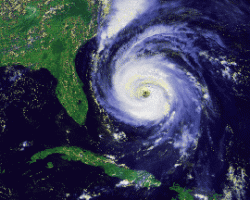 SUMMIT COUNTY —A study of hurricane tracks during the past 100 years suggests that tropical storm activity is clustered rather than random, with short intense periods of hurricanes followed by relatively long quiet periods. The trend was most pronounced in the Caribbean, with strong clustering in Florida, the Bahamas, Belize, Honduras, Haiti and Jamaica.
SUMMIT COUNTY —A study of hurricane tracks during the past 100 years suggests that tropical storm activity is clustered rather than random, with short intense periods of hurricanes followed by relatively long quiet periods. The trend was most pronounced in the Caribbean, with strong clustering in Florida, the Bahamas, Belize, Honduras, Haiti and Jamaica.
The findings, published in the journal Proceedings of the National Academy of Sciences, could have profound implications for hurricane forecasting and for monitoring impacts of tropical storms to coastal ecosystems and human populations.
The researchers said it’s important to consider the clustered nature of hurricane events when predicting the impacts of storms and climate change on ecosystems. For coral reefs, forecasts of habitat collapse were overly pessimistic and have been predicted at least 10 years too early as hurricanes were assumed to occur randomly over time, which is how most research projects model the incidence of future hurricanes.
By Summit Voice



